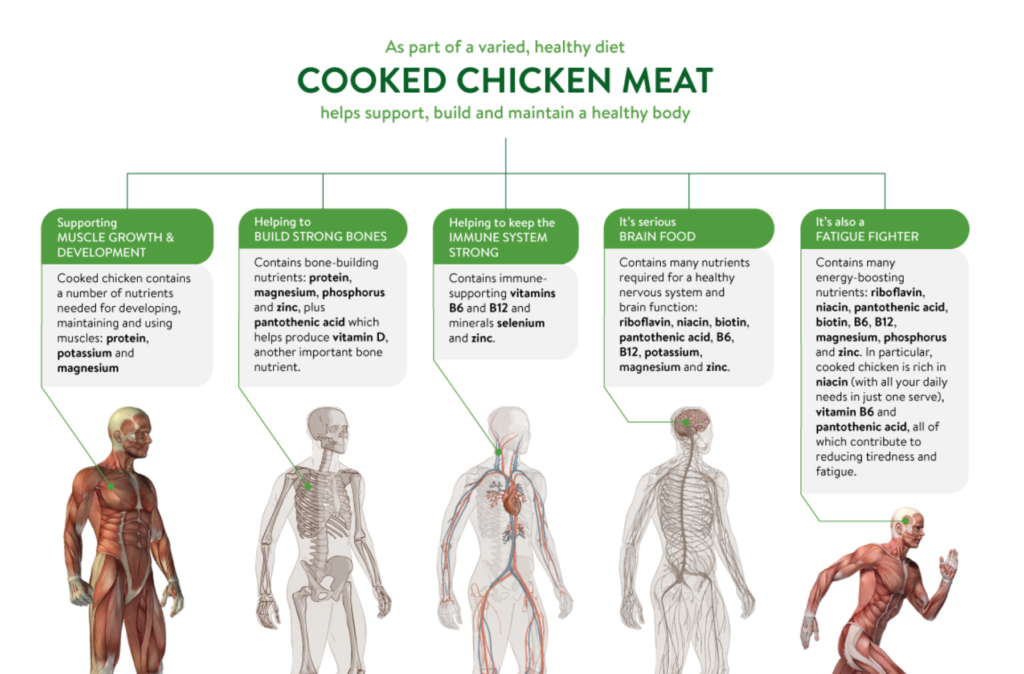Chicken is one of the leanest meat sources with low-fat content and is a rich source of protein containing all the essential amino acids in it. It is dense in vitamins and minerals, including B complex (Niacin and B3), Vitamin A, D, Calcium, Phosphorous, and Magnesium.

Protein in chicken plays a vital role in growth and development in the body and is an integral component of every cell of the body, including muscles. Protein deficiency can make it hard for the body to rebuild itself properly, and continuous lack can lead to muscle degeneration. In addition to muscle growth, protein is essential for the growth and repair of almost all cells and body tissues, bones, organs, and bodily fluids. It plays a significant role in bodily functions like blood clotting, immune system response, vision, fluid balance, and is useful in the production of various enzymes and hormones.
The amount of protein required for tissue growth and rehabilitation depends on activity levels, health, and body composition. Unlike Carbs, our body has almost no way of storing excess proteins for future use as it gets broken down and stored away in fat tissues with liver removing the excess nitrogen through urea. This process results in the need for regular consumption of protein in every meal.
Chicken has a chock full of Amino acid-tryptophane and vitamin B that helps increase serotonin production in the brain resulting in overall mood enhancement. Vitamin B helps in the prevention of cataract formation and skin disorders. It also helps in regulating digestion and boosting immunity over time. Vitamin D, combined with calcium and phosphorous, can help increase bone strength as it increases the absorption of calcium, which results in reducing the risks of arthritis
In conclusion, eating chicken in recommended portions as a part of a balanced diet will help your body maintain muscles, have better moods, and increase overall health.
